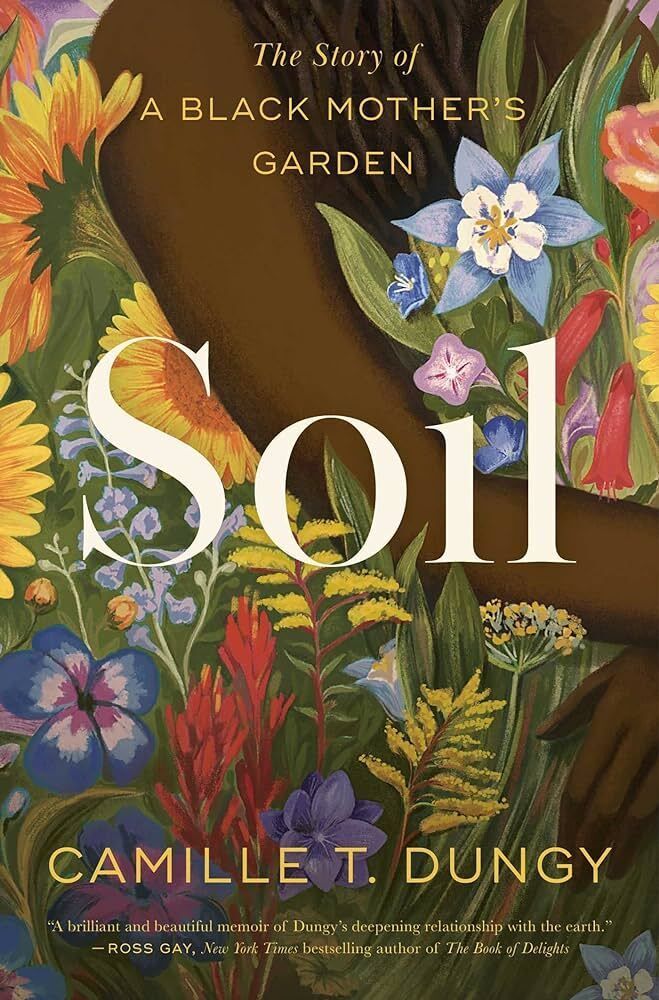
Soil: The Story of a Black Mother's Garden is part memoir, part nature essay, part history lesson... cultivated all together in the home garden of author Camille Dungy's Colorado yard. When Dungy set out to change her homogeneous suburban yard into a garden she envisioned a bio-diverse landscape, "A garden that seemed to have nothing to offer humans but beauty."
According to Dungy, this beauty is of utmost importance in our modern lives. She writes, "Every person who finds herself constantly navigating political spaces - by which I mean every person who regularly finds herself demoralized and exhausted by the everyday patterns of life in America - should have access to such a garden."
Soil takes readers on the 7 year journey of Dungy's garden transformation. Through Covid, George Floyd's murder, and personal ups and downs, Dungy finds herself returning to her garden, to the soil, for strength and solace. Dungy deftly intertwines stories of her garden with a larger history of the African diaspora. Whether comparing her continuous battle to keep bindweed at bay to the systemic racism that plagues our nation, or in a powerful chapter where she is planting tulip and daffodil bulbs while processing Elijah McClain's murder, Dungy's unblinking honesty grips both the reader's mind and heart.
From the front book jacket copy, "Camille employs the various plants, herbs, vegetables, and flowers she grows in her garden as a metaphor for how homogeneity threatens the future of our planet, and why cultivating diverse and intersectional language in our national discourse about the environment is our best means of protecting it."
While topics explored in Soil may not always be easy or pleasant to read about, it is necessary to face painful history and current events in order that we may continue to grow and flourish together. As Dungy states, "Whether a plot in a yard or pots in a window, every politically engaged person should have a garden. By politically engaged, I mean everyone with a vested interest in the direction the people on this planet take in relationship to others. We should all take some time to plant life in the soil. Even when such planting isn't easy."
In Soil, Dungy gives the reader the seeds to do just that.











